In the journey of a child’s speech development, the power of early intervention speech therapy cannot be overstated. For both speech therapists and parents of young children who struggle with their early speech, understanding the critical role you play is essential. This post will discuss some early intervention speech therapy activities plus give you access to a FREE First Words Tracker!
Speech Pathologist turned SLP Mom
As a speech pathologist by career choice, I was ecstatic when I finally had my own children to be able to watch their language development skills.
I thought when my first child started talking it would be so much fun to document his journey with first words. As a therapist, I knew the stages of communication for expressive language skills and I looked forward to documenting his babbling, first words and first phrases in his growth.
However he did not babble and those first words did not come as expected. Once I found myself on the other side of the table as an SLP mom of a late talker, I looked at documenting those first words through a totally different lens. So I got to work, making some pages to track his growth and change over time.
Most importantly, this data helped me keep things straight and organized when reporting back to his early intervention speech therapist during our monthly coaching sessions.
Why Should You Track a Child’s First Speech Sounds and Words?
As stated above, there are certain milestones at every age group to be aware of. When a child isn’t hitting those milestones, it is best to keep data so that you can watch the changes in speech patterns for expressive language skills over time.
Plus, after the first few words, it is honestly hard to remember the new words they begin to say so tracking keeps the guesswork out of it so you can easily share this with your child’s therapist.
Start by keeping track of early sounds that your child is saying and then begin to look for syllable shapes over time.
For example, are they saying consonant vowel words (CV), vowel consonant (VC), CVCV or CVC? Tracking helps you organize this type of data better.
To help your child begin to say his or her first few words, you may check out the Encouraging First Words Handouts.
These are especially great for SLPs to give to give parents after doing some initially observation and testing for early intervention.
Late Talkers: When to Worry
Remember that every child is unique and will do things in their own time.
These early intervention handouts all about late talkers are a good place to start when you have a late talker.
Although the handouts in this packet are developed for early intervention, I also used them with delayed preschool students.
They discuss things such as what a late talker is, what actually counts as a word, the stages of babbling, ideas for child-led play to increase speech and much much more.
If you think your child has a potential speech delay, it is best to talk to your doctor or call your local school district to see if they qualify for early intervention speech therapy services.
Early Intervention FREE First Words Tracker
Use this to keep track of your child’s first words or as an SLP of an early intervention program to give to parents and guardians.
The FREE Tracker includes 5 pages in total, with the following items:
- word lists
- functions of language
- sound inventory
- signing List
- a language Samples
Early intervention families that have used this have mentioned that once they begin to track intentionally, they are surprised by the number of sounds and words their child is actually saying.
Fun Early Intervention Speech Therapy Activities To Try
Below are some simple early intervention speech therapy ideas that you can incorporate into everyday life and daily routines.
Routines are a great way to practice speech and language because they build predictable patterns in a child’s day. When we do the same activities daily, there is a great chance for the child to learn specific vocabulary, social expectations and actions. Basically, we can capitalize on the repeated exposure to a task through daily life to build language.
These activities are meant to help late talkers and children receiving early intervention speech services.
Eating a Snack
This is a great time to focus on getting your child to imitate words. It is recommended to try this with a bowl of snacks rather than a meal time.
Snacks are one of the best communication temptations. You can teach your child to imitate:
Pour the snack into the bowl.
Say, “Look, I’m pouring some ___ into the bowl. Yum! I love to eat __. You like to eat ___ too. Mmmm ____. “
Then ask your child, ” Do you want ___?
Look at them and wait for a response. If they use a word approximation or gesture, celebrate that! If not, just keep modeling!
The goal of this interaction is to give your child a lot of models so that they might soon start to imitate one of their favorite food items.
Brushing Teeth
Anytime spent in the mirror is a great time to build a connection and build language with your child. For this activity, you will use the mirror as a perfect way to establish back and forth social routines.
Try these things back and forth with your child:
- Make funny faces
- blow raspberries
- stick out your tongue
- sing songs
Explain what you are doing to your child and why. Children tend to learn best when things are explained.
DO THIS:
“It’s time to brush your teeth. We brush and clean our teeth so they stay healthy. We want healthy teeth so we can eat all kinds of foods. Let’s get your green toothbrush. Can you find the toothpaste? Squeeze just a little bit out. Now what do we do? Yes! Let’s brush the front. Now what? yes-time to brush the back! You brushed your teeth. Now let mommy brush them too. I am brushing the front and the back. I go up and down and make sure I get all your teeth. We did it! Time to rinse our teeth and our brush so they stay clean.”
Use positional words like up/down and front/ back while you are your child brush their teeth.
NOT THIS:
“Brush your teeth.”
FIND MORE EARLY INTERVENTION IDEAS FOR SPEECH THERAPY:
There are TONS of more ideas like the ones above in the Early Intervention Daily Routines Handbook for Parents.
Early Intervention Handbooks for Parents:
Find many more early intervention speech therapy activities in the handouts below! These are perfect to put on your bulletin board or give to parents at meetings.
Early Intervention Set 1: Norms and Language Strategies
Early Intervention Set 2: Daily Routines
Early Intervention Set 3: Encouraging First Words
Early Intervention Set 4: Late Talkers
Early Intervention Set 5: Gestures
Early Intervention ENTIRE BUNDLE (Sets 1-5)
You might also like:
30 Picture Books for Early Intervention Speech Therapy
Join the SRN newsletter!

I'm so glad you stopped by! If you'd like to keep up with the newest posts and get exclusive free downloads, please sign up for the newsletter! Your first freebie is ready as soon as you subscribe and confirm your email!
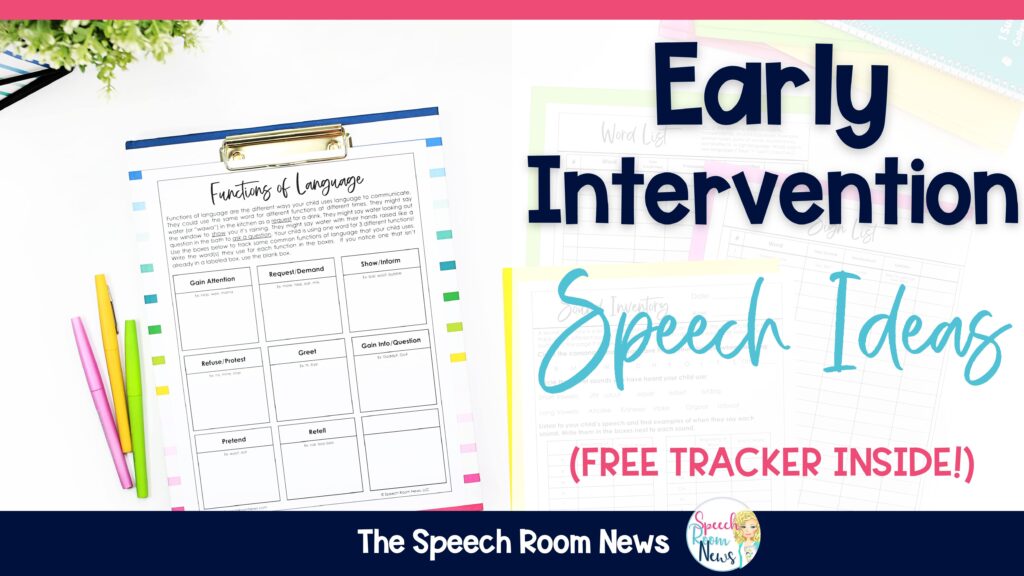
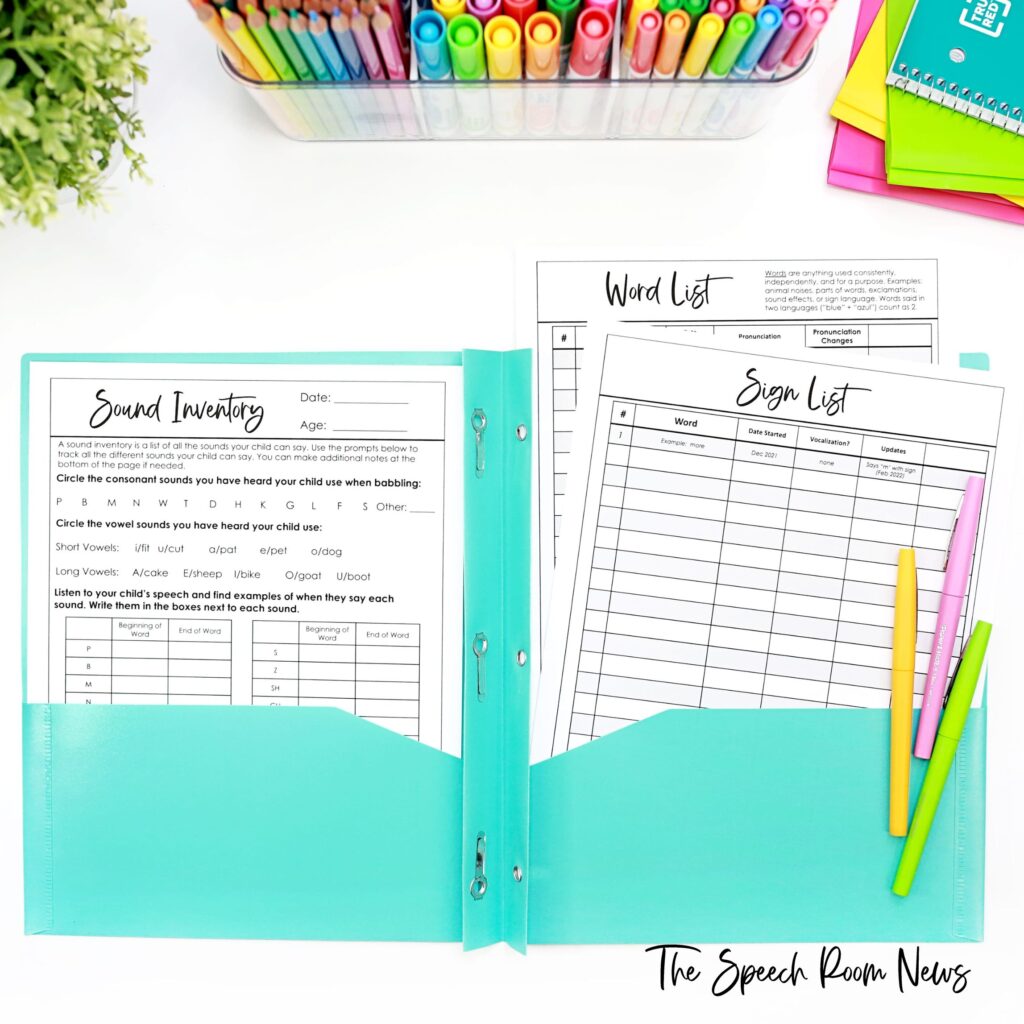
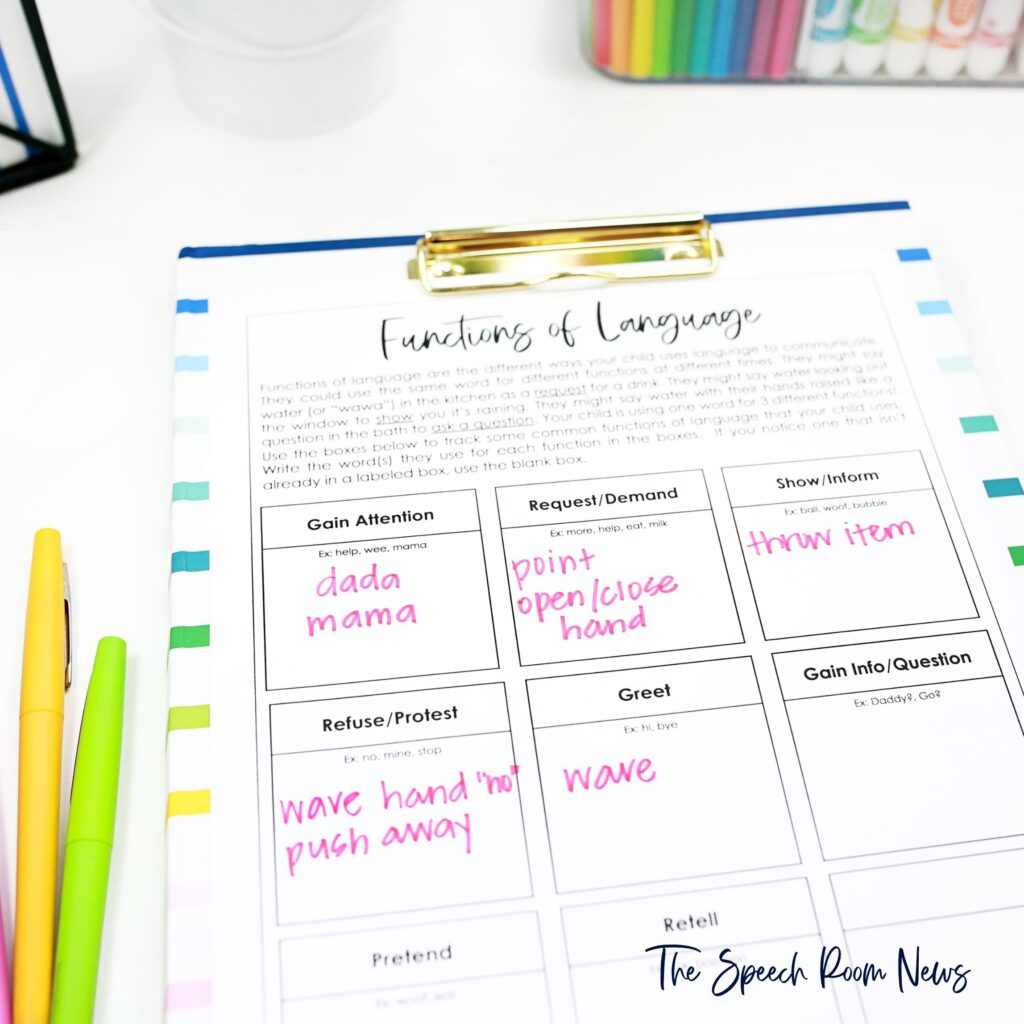
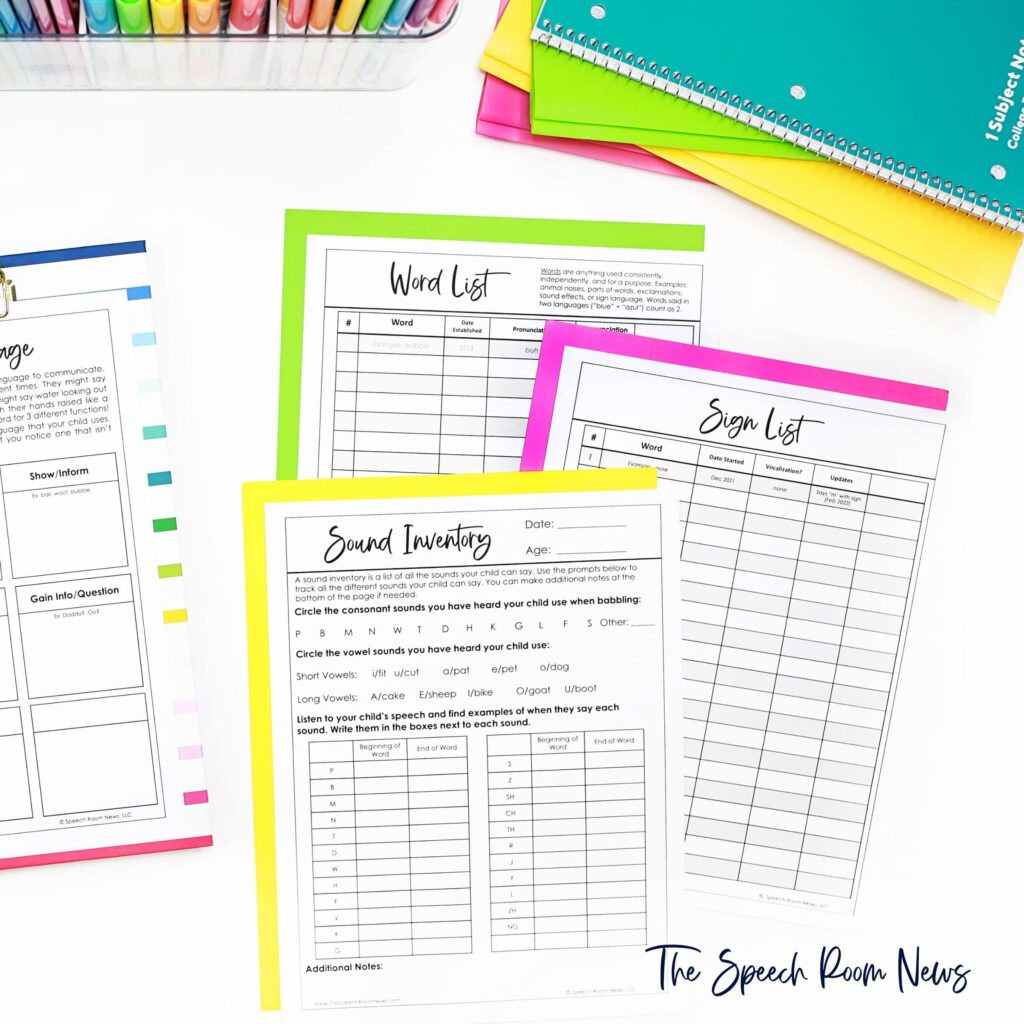
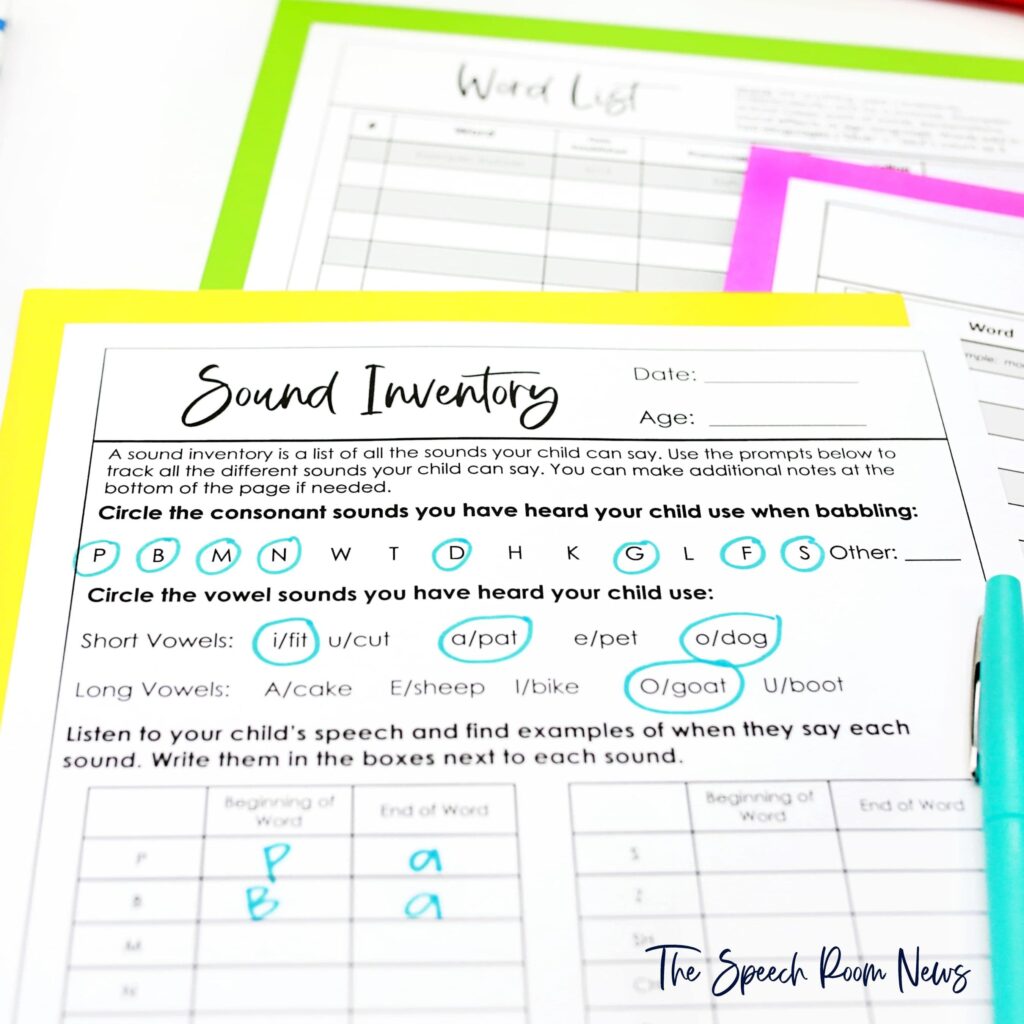

Leave a Reply